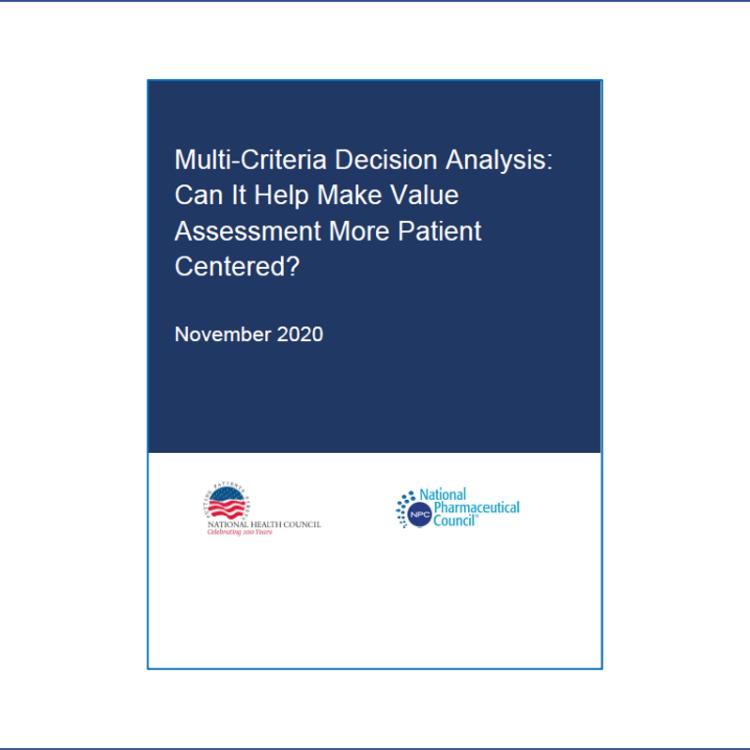Authors: National Health Council and National Pharmaceutical Council
November 19, 2020
Full Report
Multi-Criteria Decision Analysis (MCDA) is an approach to value assessment that takes patients’ concerns, experiences and treatment preferences into consideration. It offers a unique way to quantify what matters most to patients when they consider the value of a health care treatment and its impact on their quality of life.
A white paper written by the National Health Council and National Pharmaceutical Council summarizes a roundtable dialogue to identify good practices and key considerations for integrating the patient voice into patient-centered MCDA. NHC and NPC hosted stakeholders from patient, academic, payer, employer, value/health technology assessment organizations, and the biopharmaceutical industry for this Feb. 26, 2020 discussion.
The white paper highlights key takeaways from the discussion, along with recommended next steps toward broader understanding and use of MCDA. Some of the top takeaways on opportunities and challenges were identified in these areas:
MCDA and Patient Centricity
- Patient input should be solicited when identifying the “universe” of potential criteria.
- Quantitatively incorporating outcomes/treatment characteristics important to patients can enhance transparency.
- MCDA offers an opportunity to include more elements of value through either qualitative or quantitative structured processes.
Data and Evidence Generation for Patient-Centered MCDA
- Inputs should not be limited to clinical trial data.
- Understand which outcomes/treatment characteristics are important to patients before investing in gathering data on a large scale.
- Underlying data and preferences should stem from those who will be impacted by the decision an MCDA will inform.
- Patient/caregiver groups should be engaged as research partners.
- Patients should understand and consent to how their information will be used.
MCDA Implementation and Dissemination
- MCDA can be a standalone exercise or used in parallel with cost-effectiveness analysis (CEA).
- More research is needed to understand when to incorporate MCDA into decision making.
- More people need to be trained on MCDA use and interpretation.
- Individual payers are unlikely to have internal resources to conduct an MCDA; external researchers could assist.
- To encourage uptake, MCDA-model interfaces need to be user friendly.

